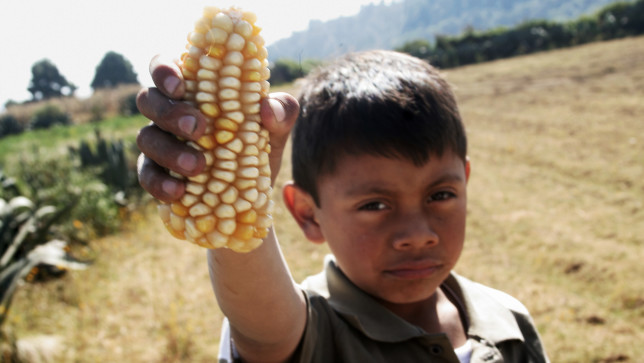In what is being called a significant victory for Mexico, Monsanto has withdrawn its legal challenge against the 2020 presidential decree aimed at banning glyphosate and genetically modified (GM) corn for human consumption, Mexico News Daily reported. The Mexican government’s National Council of Humanities, Sciences and Technologies (Conahcyt) heralded the decision as “a triumph for life, health and food sovereignty”.

Bayer/Monsanto’s subsidiaries, Semillas y Agroproductos Monsanto and Monsanto Comercial, ratified their withdrawal on June 25.
Bayer’s Monsanto produces the herbicide Roundup, one of several glyphosate-based products that are used in the cultivation of genetically modified organisms (GMO) such as Roundup Ready corn, cotton and soybeans. A common genetic modification makes crops resistant to glyphosate, allowing farmers to apply large amounts of the weed-killer to GMO crops.
The legal battle was initiated in response to President Andrés Manuel López Obrador’s 2020 decree to ban the widely used but controversial herbicide, which the World Health Organization (WHO) has classified as a “probable carcinogen,” though its safety remains a subject of debate.
The battle included over 30 amparo (judicial protective order) suits aiming to declare the decree unconstitutional. In July 2022, for example, Bayer, which acquired Monsanto six years ago, obtained a court order against the application of the decree.
However, the majority of the cases concluded with rulings unfavorable to the corporations involved. Conahcyt provided scientific and legal defenses, presenting more than 250 pieces of evidence to support the decree.
Glyphosate Box
Glyphosate Residue Free Certification for Food Brands – Click Here
Test Your Food and Water at Home for Glyphosate – Click Here
Test Your Hair for Glyphosate and other Pesticides – Click Here to Find Our Your Long-Term Exposure
Judge Francisco Rebolledo Peña’s July 2022 ruling in favor of Monsanto was appealed by the Ministry of the Environment and Natural Resources (Semarnat), the Federal Commission for Protection against Sanitary Risks (Cofepris) and Conahcyt.
Citing human rights and environmental safety concerns, the appeal eventually led to Mexico’s Fourth Collegiate Court on Administrative Matters rejecting Monsanto’s arguments. Earlier this year, that same body slapped down an amparo brought by Walmart Mexico against the nation’s updated tobacco control law, which added promotional and advertising bans to the nationwide ban against smoking in public areas.
Monsanto’s retreat is not its first legal setback. The company has faced extensive litigation in the United States, paying billions in punitive damages and settlements linked to glyphosate’s carcinogenic risks.
Internal documents revealed during the trials in Mexico indicated that Monsanto was aware of glyphosate’s cancer risks and engaged in misleading scientific practices and discrediting independent researchers.
The 2020 decree was replaced by a 2023 decree, which reaffirmed the initial ban and introduced additional restrictions on GM corn.
That led to Mexico also facing anger from the United States, which was not happy over Mexico’s plan to ban the importation of GM corn for use in dough and tortillas by 2024, then gradually phase out imports of GM corn for any kind of human consumption and then for use as animal feed.
Monsanto also wanted to suspend the 2023 decree, and a few months ago, Mexico seemed to be giving in a bit when it postponed the glyphosate ban citing lack of available alternatives.
In shooting down Monsanto’s latest legal challenges, Judge Elizabeth Trejo Galán emphasized the precedence of public over private interest.
Conahcyt noted in a press release that it continues to support alternative agricultural practices and bioinputs, highlighting their effectiveness in various regions.
Noting that the legal victory over Monsanto underscores Mexico’s commitment to safeguarding public health and environmental integrity, Conahcyt vowed to continue its efforts to ensure that GM corn and glyphosate are removed from the Mexican food supply.



















